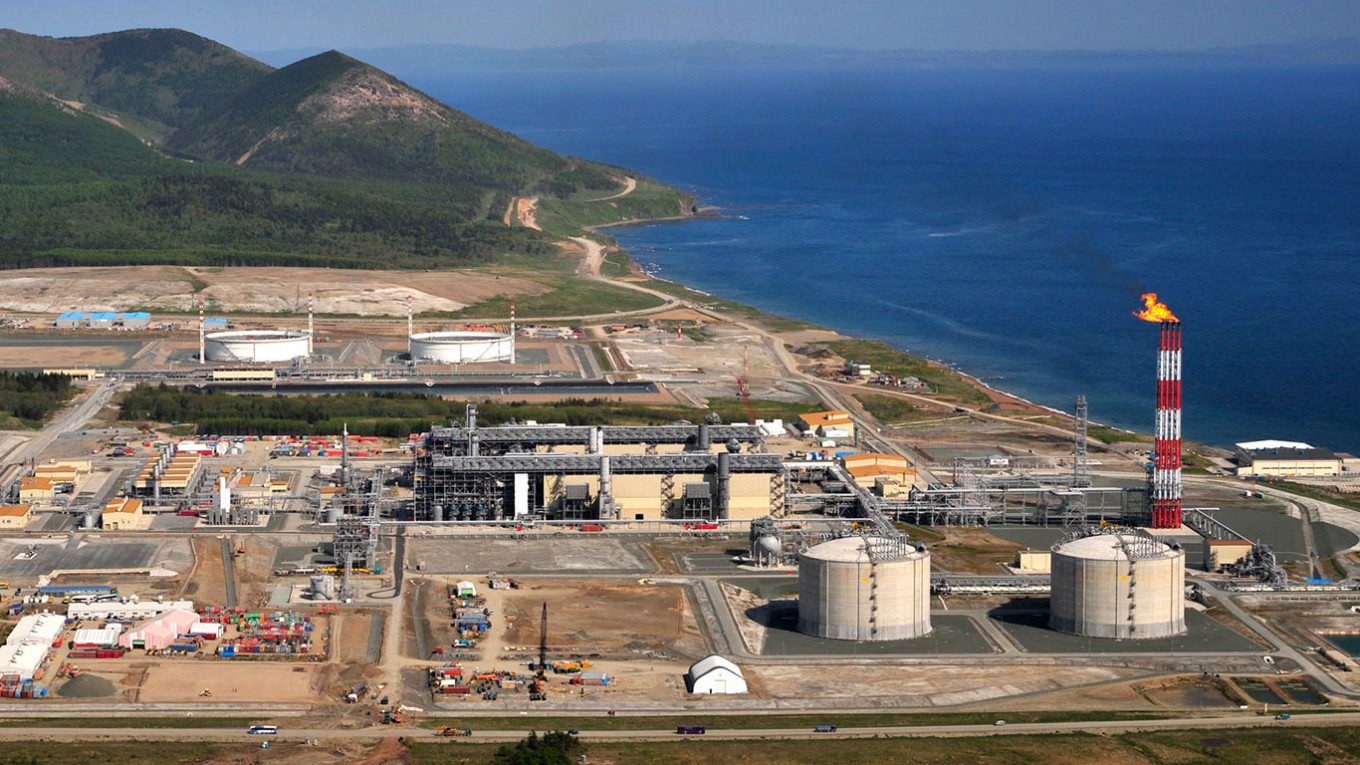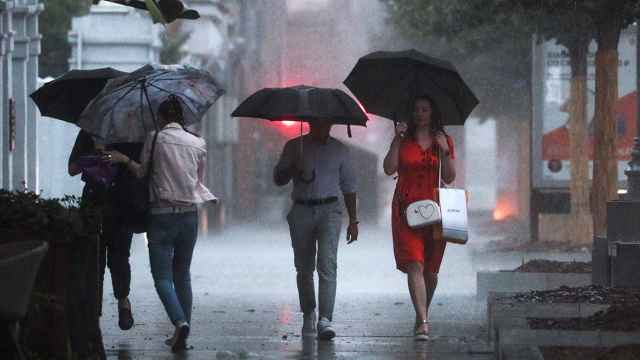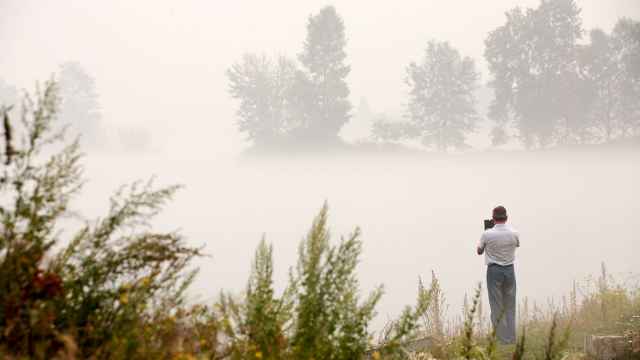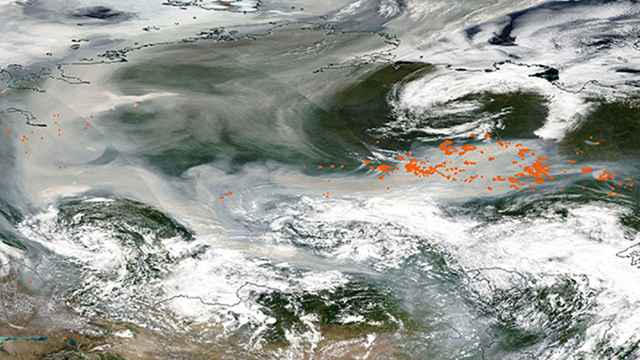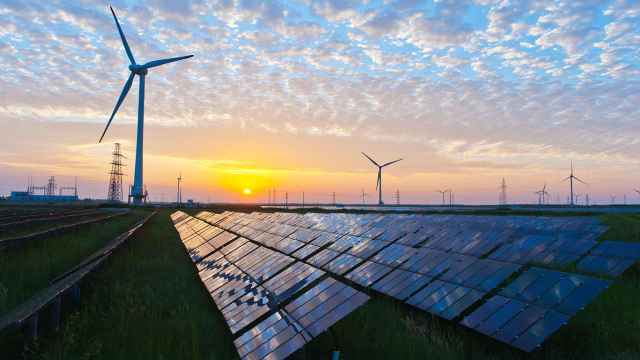Now that the United Nations’ COP26 climate summit has ended, opinions are split over whether world leaders made the commitments needed to keep global warming from passing a catastrophic threshold.
Here’s a look at things Russia did — and did not do — at the landmark summit in Glasgow:
Deforestation pledge
Russia, which is home to one-fifth of the world’s forests, was among the more than 100 countries to sign a global pledge to halt deforestation by 2030 at COP26.
Russia plans to heavily rely on its vast forests, mainly in Siberia, to meet its greenhouse gas emission reduction goal. The Russian government recently claimed that the carbon sink potential of Russia’s forests is much higher than previously estimated, a statement questioned by climate experts.
In order to fight deforestation, Russia would need to tighten controls over both legal and illegal logging as well as up its game in fighting forest fires. Experts have voiced concerns that the increasingly severe wildfires that have hit Siberia in recent years will only become more intense due to climate change and unsustainable forestry practices.
However, efforts at COP26 to stop deforestation and preserve natural carbon sinks received some pushback, said WWF Russia’s climate and energy head Alexei Kokorin, with countries such as India, the Philippines and Malaysia trying to push ecosystem protections from the draft list of high-priority tools to combat the climate crisis.
“This is bad news for the Russian negotiators” as Russia intends to heavily rely on this tool in its decarbonization efforts, Kokorin said.
Net-zero by 2060
Russia did not present a more ambitious climate strategy in advance of COP26 as was required under the Paris Agreement. However, officials signed a document days before the summit which allowed President Putin to announce that Russia aims to reach net-zero carbon emissions by 2060.
At COP26, the Russian delegation went one step further and claimed that the net-zero emissions target might be reached before 2060, though it did not specify when that could happen.
Additionally, Russia did not announce an ambitious renewable energy strategy and did not promise drastic emissions cuts by 2030 despite calls from the UN to do so.
Absent from coal and methane pledges
Russia was among the fossil fuel-dependent nations that were absent from two global pledges to cut methane emissions by 30% by 2030 and phase out coal in the next decade.
Russia plans to increase its coal production over the next 10 years. The Kremlin also considers natural gas to be a crucial transition fuel even though the International Energy Agency has called on nations to immediately halt investments into new gas projects.
The Russian delegation at COP26 presented Russia’s power grid as one of the most low-carbon in the world. Roughly 40% of power in Russia is generated by clean energy sources: hydro, nuclear, solar and wind. If natural gas (which Russia considers to be low-carbon) is added to this mix, this share rises to 86%. Meanwhile, solar and wind account for just 0.2% of Russia’s power supply.
The Russian delegation repeatedly referred to nuclear energy as the energy of the future. Almost 10% of the roughly 320 Russian delegates at COP26 represented the nuclear power industry — almost twice the number of fossil fuel or renewable representatives.
Activist reactions
In a statement, Greenpeace Russia acknowledged that Russia’s decarbonization strategy seems to point the country in the right direction. However, it is far from clear how Russia aims to achieve its newly stated net-zero goal.
“[The Russian government] is doing climate reforms because they are afraid of a carbon tax in Europe. It is about money, it is not about our future,” Fridays For Future activist Arshak Makichyan said in an interview with Bloomberg.
“In Russian, ‘net’ means ‘no,’ this is the Russian explanation of net-zero emissions – it just means no action,” Vasily Yablokov, the head of Greenpeace Russia’s climate and energy department, tweeted Thursday.
Russia and other major carbon emitters have not been able to bridge the gap between the need to drastically cut emissions on one hand and protect national and fossil fuel interests on the other, environmentalists from Greenpeace claimed.
“Russia fit in quite organically with other developed nations that have been masterfully creating an illusion of fighting the climate crisis,” the activists wrote in a press release after COP26 ended.
A Message from The Moscow Times:
Dear readers,
We are facing unprecedented challenges. Russia's Prosecutor General's Office has designated The Moscow Times as an "undesirable" organization, criminalizing our work and putting our staff at risk of prosecution. This follows our earlier unjust labeling as a "foreign agent."
These actions are direct attempts to silence independent journalism in Russia. The authorities claim our work "discredits the decisions of the Russian leadership." We see things differently: we strive to provide accurate, unbiased reporting on Russia.
We, the journalists of The Moscow Times, refuse to be silenced. But to continue our work, we need your help.
Your support, no matter how small, makes a world of difference. If you can, please support us monthly starting from just $2. It's quick to set up, and every contribution makes a significant impact.
By supporting The Moscow Times, you're defending open, independent journalism in the face of repression. Thank you for standing with us.
Remind me later.


